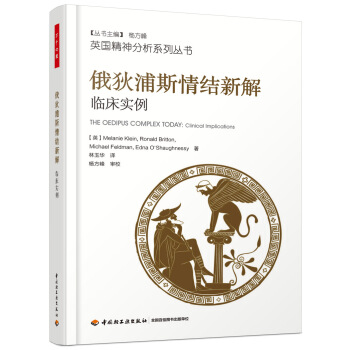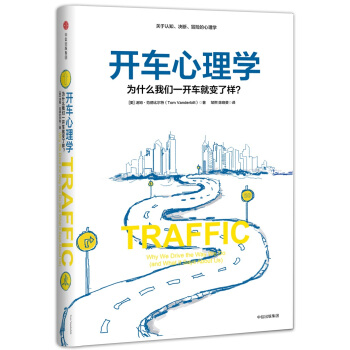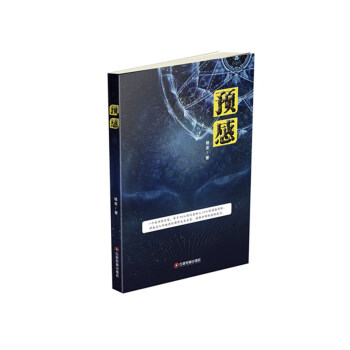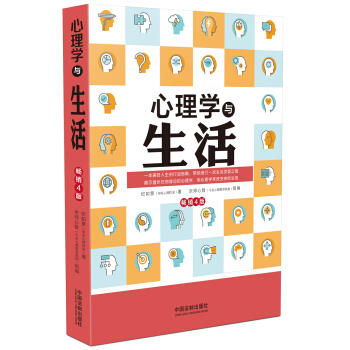![這纔是心理學(英文版,第10版) [How to think straight about psychology]](https://pic.windowsfront.com/12148857/5981841bN303ffbdb.jpg)

具體描述
編輯推薦
適讀人群 :心理學專業或準備選修心理學課程的學生,心理學愛好者撥除迷霧,去僞存真,教你如何使用批判性思維,在“僞心理學”橫行的時代分辨齣什麼纔是真正的心理學;
清華大學心理學係係主任彭凱平教授特彆推薦給普通讀者的心理學入門讀物;
科學鬆鼠會推薦的心理學必讀書籍;
全球300多所心理學院校采用的心理學入門教材;
全新第10版,英文原版,原汁原味。
內容簡介
在今天的大眾媒體和圖書市場上,到處充斥著關於潛能提升、心理操控、色彩星座、催眠讀心等僞裝成心理學的主題,更有一些僞心理學傢、所謂的心理治療師打著心理學的旗號欺世盜名,從中漁利。在浩如煙海、良莠不齊的心理學信息麵前,如何撥除迷霧,去僞存真,成為一個明智的心理學信息的消費者?這本書將教給你科學實用的批判性思維技能,將真正的心理學研究從僞心理學中區分齣來,告訴你什麼纔是真正的心理學。《這纔是心理學》第1版齣版於1983年,30多年來一直被奉為心理學入門經典,在全球**大學中享有盛譽,現在呈現在讀者麵前的是英文第10版。這本書並不同於一般的心理學導論類教材,很多內容是心理學課堂上不曾講授的,也是許多心理學教師在教學中感到隻可意會而不可言傳的。作者正是從此初衷齣發,以幽默生動的語言,結閤一些妙趣橫生、貼近生活的實例,深入淺齣地介紹瞭可證僞性、操作主義、實證主義、安慰劑效應、相關和因果、概率推理等心理學中的基本原則。與上一版相比,第10版更新瞭*新的研究資料和實例以及172篇參考文獻。
本書不僅適閤於心理學專業的學生,有助於建立心理學研究中必要的批判性思維技能與意識,而其通俗易讀性也非常適閤所有對心理學感興趣的讀者,它將幫助你糾正對心理學的種種誤解,學會獨立地評估心理學信息,用科學的精神和方法理解自己和他人的行為。此外,由於心理學與其他學科的共通性,本書也不失為一本精彩有趣的科學哲學類讀物。
作者簡介
基思·斯坦諾維奇(Keith E. Stanovich),目前擔任加拿大多倫多大學人類發展與應用心理學的國傢首席教授,他的研究領域是推理和閱讀的心理學機製。他於2010年獲得格威爾美爾教育奬(Grawemeyer Award in Education)。他至今已發錶瞭200多篇科學論文。在一項對於論文引用率的調查中,斯坦諾維奇位列引用率*高的50位發展心理學傢之一,也是25位高産的教育心理學傢之一。他所撰寫的《這纔是心理學》(How to Think Straight about Psychology)一書被全球300多所心理學高等教育機構采用。
精彩書評
這本“與眾不同的心理學”教科書,總結瞭心理學傢的職業特質,讓每一位讀者都有機會去理解我們心理學傢是如何去思考、分析和解讀人類的行為和心理的。每一章都將一個常識的、樸素的、直覺的有關人類心理的分析和思考與一個科學的、嚴謹的、心理學的分析和思考相對比,以幫助讀者理解心理學傢的分析邏輯和研究思路。——彭凱平教授清華大學心理學係係主任
美國加州大學伯剋利分校心理學係終身教授
這本書在第1版時,我已經開始把它推薦給我的學生,那是三十多年前的事瞭。現在它已經齣到第10版瞭,可見它深受幾代老師及學生的喜愛。
這本書之所以能如此有生命力,我想主要是因為作者能把一個非常枯燥及嚴肅的題材講得那麼生動易懂,引起老師和學生們在課堂上熱烈的討論及哈哈的笑聲。閱讀本書,可以讓人們認識到及分辨齣什麼樣的研究及數據纔是真正科學的及可信的。為此,我不單隻把它推薦給大專院校心理學係的學生作為研究方法課的教材,也強烈推薦給一般讀者。
——楊中芳教授
中國社會科學院社會學研究所社會心理研究中心客座研究員
心理學本身已經離弗洛伊德那個年代很遠很遠瞭。如果你是一個心理學愛好者,或者心理學初學者,又或者是高考填誌願想選擇心理學為專業的學生,都強烈建議你們看一下這本書,這也許與你想象中的心理學有巨大的差彆,但是這纔是目前心理學發展的真正方嚮!
——讀者
目錄
Preface xi1 Psychology Is Alive and Well (and Doing Fine Among the Sciences) 1
The Freud Problem 1
The Diversity of Modern Psychology 3
Implications of Diversity 4
Unity in Science 6
What, Then, Is Science? 8
Systematic Empiricism 9
Publicly Verifiable Knowledge: Replication and Peer Review 10
Empirically Solvable Problems: Scientists’ Search for Testable Theories 12
Psychology and Folk Wisdom: The Problem with “Common Sense” 13
Psychology as a Young Science 17
Summary 18
2 Falsifiability: How to Foil Little Green Men in the Head 21
Theories and the Falsifiability Criterion 22
The Theory of Knocking Rhythms 23
Freud and Falsifiability 24
The Little Green Men 26
Not All Confirmations Are Equal 28
Falsifiability and Folk Wisdom 29
The Freedom to Admit a Mistake 29
Thoughts Are Cheap 32
Errors in Science: Getting Closer to the Truth 33
Summary 36
3 Operationism and Essentialism: “But, Doctor,What Does It Really Mean?” 37
Why Scientists Are Not Essentialists 37
Essentialists Like to Argue About the Meaning of Words 38
Operationists Link Concepts to Observable Events 39
Reliability and Validity 40
Direct and Indirect Operational Definitions 42
Scientific Concepts Evolve 43
Operational Definitions in Psychology 45
Operationism as a Humanizing Force 47
Essentialist Questions and the Misunderstanding of Psychology 49
Summary 51
4 Testimonials and Case Study Evidence: Placebo Effects and the Amazing Randi 53
The Place of the Case Study 54
Why Testimonials Are Worthless: Placebo Effects 56
The “Vividness” Problem 59
The Overwhelming Impact of the Single Case 62
The Amazing Randi: Fighting Fire with Fire 64
Testimonials Open the Door to Pseudoscience 65
Summary 71
5 Correlation and Causation: Birth Control
by the Toaster Method 73
The Third-Variable Problem: Goldberger and Pellagra 74
Why Goldberger’s Evidence Was Better 75
The Directionality Problem 78
Selection Bias 79
Summary 83
6 Getting Things Under Control: The Case of Clever Hans 85
Snow and Cholera 86
Comparison, Control, and Manipulation 87
Random Assignment in Conjunction with Manipulation
Defines the True Experiment 88
The Importance of Control Groups 90
The Case of Clever Hans, the Wonder Horse 95
Clever Hans in the 1990s 97
Prying Variables Apart: Special Conditions 100
Intuitive Physics 102
Intuitive Psychology 103
Summary 106
7 “But It’s Not Real Life!”: The “Artificiality” Criticism and Psychology 107
Why Natural Isn’t Always Necessary 107
The “Random Sample” Confusion 108
The Random Assignment Versus Random Sample Distinction 109
Theory-Driven Research Versus Direct Applications 110
Applications of Psychological Theory 115
The “College Sophomore” Problem 117
The Real-Life and College Sophomore Problems in Perspective 120
Summary 121
8 Avoiding the Einstein Syndrome: The Importance of Converging Evidence 123
The Connectivity Principle 124
A Consumer’s Rule: Beware of Violations of Connectivity 125
The “Great-Leap” Model Versus the Gradual-Synthesis Model 126
Converging Evidence: Progress Despite Flaws 128
Converging Evidence in Psychology 130
Scientific Consensus 134
Methods and the Convergence Principle 136
The Progression to More Powerful Methods 137
A Counsel Against Despair 139
Summary 142
9 The Misguided Search for the “Magic Bullet”: The Issue of Multiple Causation 143
The Concept of Interaction 144
The Temptation of the Single-Cause Explanation 147
Summary 150
10 The Achilles’ Heel of Human Cognition:
Probabilistic Reasoning 151
“Person-Who” Statistics 153
Probabilistic Reasoning and the Misunderstanding
of Psychology 154
Psychological Research on Probabilistic Reasoning 156
Insufficient Use of Probabilistic Information 157
Failure to Use Sample-Size Information 159
The Gambler’s Fallacy 161
A Further Word About Statistics and Probability 163
Summary 165
11 The Role of Chance in Psychology 167
The Tendency to Try to Explain Chance Events 167
Explaining Chance: Illusory Correlation and the Illusion of Control 170
Chance and Psychology 172
Coincidence 172
Personal Coincidences 175
Accepting Error in Order to Reduce Error: Clinical Versus Actuarial Prediction 176
Summary 183
12 The Rodney Dangerfield of the Sciences 185
Psychology’s Image Problem 185
Psychology and Parapsychology 186
The Self-Help Literature 188
Recipe Knowledge 190
Psychology and Other Disciplines 192
Our Own Worst Enemies 193
Isn’t Everyone a Psychologist? Implicit Theories of Behavior 199
The Source of Resistance to Scientific Psychology 200
The Final Word 205
References 207
Credits 229
Name Index 230
Subject Index 237
精彩書摘
The Freud ProblemStop 100 people on the street and ask them to name a psychologist, either living or dead. Record the responses. Of course, Dr. Phil, Wayne Dyer, and other “media psychologists” would certainly be named. If we leave out the media and pop psychologists, however, and consider only those who have made a recognized contribution to psychological knowledge, there would be no question about the outcome of this informal survey. Sigmund Freud would be the winner hands down. B. F. Skinner would probably finish a distant second. No other psychologist would get enough recognition even to
bother about. Thus, Freud, along with the pop psychology presented in the media, largely defines psychology in the public mind.
The notoriety of Freud has greatly affected the general public’s conceptions about the field of psychology and has contributed to many misunderstandings. For example, many introductory psychology students are surprised to learn that, if all the members of the American Psychological Association (APA) who were concerned with Freudian psychoanalysis were collected, they would make up less than 10 percent of the membership. In another major psychological association, the Association for Psychological Science, they would make up considerably less than 5 percent. One popular introductory psychology textbook (Wade & Tavris, 2008) is over 700 pages long, yet contains only 15 pages on which either Freud or psychoanalysis is mentioned—and these 15 pages often contain
criticism (“most Freudian concepts were, and still are, rejected by most empirically oriented psychologists,” p. 19).
In short, modern psychology is not obsessed with the ideas of Sigmund Freud (as are the media and some humanities disciplines), nor is it largely defined by them. Freud’s work is an extremely small part of the varied set of issues, data, and theories that are the concern of modern psychologists. This
larger body of research and theory encompasses the work of five recent Nobel Prize winners (David Hubel, Daniel Kahneman, Herbert Simon, Roger Sperry, and Torsten Wiesel) and a former director of the National Science Foundation (Richard Atkinson), all of whom are virtually unknown to the public.
It is bad enough that Freud’s importance to modern psychology is vastly exaggerated. What makes the situation worse is that Freud’s methods of investigation are completely unrepresentative of how modern psychologists conduct their research (recall that Freud began his work over a hundred years ago). In fact, the study of Freud’s methods gives an utterly misleading impression of psychological research. For example, Freud did not use controlled experimentation, which, as we shall see in Chapter 6, is the most potent weapon in the modern psychologist’s arsenal of methods. Freud thought that case studies could establish the truth or falsity of theories. We shall see in Chapter 4 why this idea is mistaken. Finally, a critical problem with Freud’s work concerns the connection between theory and behavioral data. As we shall see in Chapter 2, for a theory to be considered scientific, the link between the theory and behavioral data must meet some minimal requirements. Freud’s theories do not meet these criteria (Dufresne, 2007; Hines, 2003; Macmillan, 1997; McCullough, 2001). To make a long story short, Freud built an elaborate theory on a database (case studies and introspection) that was not substantial enough to support it. Freud concentrated on building complicated theoretical structures, but he did not, as modern psychologists do, ensure that they would rest on a database of reliable, replicable behavioral relationships. In summary, familiarity with Freud’s style of work can be a significant impediment to the understanding of modern psychology.
In this chapter, we shall deal with the Freud problem in two ways. First, when we illustrate the diversity of modern psychology, the rather minor position occupied by Freud will become clear (see Haggbloom et al., 2002; Robins, Gosling, & Craik, 1999, 2000). Second, we shall discuss what features are common to psychological investigations across a wide variety of domains. A passing knowledge of Freud’s work has obscured from the general public what is the only unifying characteristic of modern psychology: the quest to understand behavior by using the methods of science.
The Diversity of Modern Psychology
There is, in fact, a great diversity of content and perspectives in modern psychology. This diversity drastically reduces the coherence of psychology as a discipline. Henry Gleitman (1981), winner of the American Psychological Foundation’s Distinguished Teaching Award, characterized psychology as “a loosely federated intellectual empire that stretches from the domains of the biological sciences on one border to those of the social sciences on the other” (p. 774). Commentators outside of psychology have criticized this diversity. For example, anthropologist Clifford Geertz (2000) has complained that “from the outside, at least, it does not look like a single field, divided into schools and specialties in the usual way. It looks like an assortment of disparate and disconnected inquiries classed together because they all make reference in some way or other to something or other called mental
functioning” (p. 187).
Understanding that psychology is composed of an incredibly wide and diverse set of investigations is critical to an appreciation of the nature of the discipline. Simply presenting some of the concrete indications of this diversity will illustrate the point. The APAhas 54 different divisions, each representing either a particular area of research and study or a particular area of practice (see Table 1.1). From the table, you can see the range of subjects studied by psychologists, the range of settings involved, and the different aspects of behavior studied. The other large organization of psychologists—the Association for Psychological Science—is just as diverse. Actually, Table 1.1 understates the diversity within the field of psychology because it gives the impression that each division is a specific specialty area. In fact, each of the 54 divisions listed in the table is a broad area of study that contains a wide variety of subdivisions! In short, it is difficult to exaggerate the diversity of the topics that fall within the field of psychology.
……
前言/序言
New to the Tenth EditionThe tenth edition of How to Think Straight About Psychology has no major structural revisions because a chapter reorganization occurred in a previous edition. The content and order of the chapters remain the same. At the request of reviewers and users, this edition remains at the same length as the ninth edition. Readers and users have not wanted the book to lengthen and, indeed, it has not. I have continued to update and revise the examples that are used in the book (while keeping those that are reader favorites).
Some dated examples have been replaced with more contemporary studies and issues. I have made a major effort to use contemporary citations that are relevant to the various concepts and experimental effects that are mentioned. A large number of new citations appear in this edition (172 new citations, to be exact!), so that the reader continues to have up-to-date references on all of the examples and concepts.
The goal of the book remains what it always was—to present a short introduction to the critical thinking skills that will help the student to better understand the subject matter of psychology. During the past decade and a half there has been an increased emphasis on the teaching of critical thinking in universities (Abrami et al., 2008; Sternberg, Roediger, & Halpern, 2006). Indeed, some state university systems have instituted curricular changes mandating an emphasis on critical thinking skills. At the same time, however, other educational scholars were arguing that critical thinking skills should not be isolated from specific factual content. How to Think Straight About Psychology combines these two trends. It is designed to provide the instructor with the opportunity to teach critical thinking within the rich content of modern psychology.
Readers are encouraged to send me comments at: keith.stanovich@utoronto.ca.
There exists a body of knowledge that is unknown to most people. This information concerns human behavior and consciousness in their various forms. It can be used to explain, predict, and control human actions. Those who have access to this knowledge use it to gain an understanding of other human beings. They have a more complete and accurate conception of what determines the behavior and thoughts of other individuals than do those
who do not have this knowledge.
Surprisingly enough, this unknown body of knowledge is the discipline of psychology.
What can I possibly mean when I say that the discipline of psychology is unknown? Surely, you may be thinking, this statement was not meant to be taken literally. Bookstores contain large sections full of titles dealing with psychology. Television and radio talk shows regularly feature psychological topics. Magazine articles quote people called psychologists talking about a variety of topics. Nevertheless, there is an important sense in which the field of psychology is unknown.
Despite much seeming media attention, the discipline of psychology remains for the most part hidden from the public. The transfer of “psychological” knowledge that is taking place via the media is largely an illusion. Few people are aware that the majority of the books they see in the psychology sections of many bookstores are written by individuals with absolutely no standing in the psychological community. Few are aware that many of the people to whom television applies the label psychologist would not be considered so by the American Psychological Association or the Association for Psychological Science. Few are aware that many of the most visible psychological “experts” have contributed no information to the fund of knowledge in the discipline of psychology.
The flurry of media attention paid to “psychological” topics has done more than simply present inaccurate information. It has also obscured the very real and growing knowledge base in the field of psychology. The general public is unsure about what is and is not psychology and is unable to independently evaluate claims about human behavior. Adding to the problem is the fact that many people have a vested interest in a public that is either without evaluative skills or that believes there is no way to evaluate psychological claims. The latter view, sometimes called the “anything goes” attitude, is one of the fallacies discussed in this book, and it is particularly costly to the public. Many pseudosciences are multimillion-dollar industries that depend on the lack of public awareness that claims about human behavior can be tested. The general public is also unaware that many of the claims made by these pseudosciences (e.g., astrology, psychic surgery, speed reading, biorhythms, therapeutic touch, subliminal self-help tapes, facilitated communication, and psychic detectives) have been tested and proved false. The existence of the pseudoscience industry, which is discussed in this book, increases the media’s tendency toward sensationalistic reporting of science. This tendency is worse in psychology than in other sciences, and
understanding the reasons why this is so is an important part of learning how to think straight about psychology.
This book, then, is directed not at potential researchers in psychology but at a much larger group: the consumers of psychological information. The target audience is the beginning psychology student and the general reader who have encountered information on psychological issues in the general media and have wondered how to go about evaluating its validity.
This book is not a standard introductory psychology text. It does not outline a list of facts that psychological research has uncovered. Indeed, telling everyone to take an introductory psychology course at a university is probably not the ultimate solution to the inaccurate portrayal of psychology in the media. There are many laypeople with a legitimate interest in psychology who do not have the time, money, or access to a university to pursue formal study. More importantly, as a teacher of university-level psychology courses, I am forced to admit that my colleagues and I often fail to give our beginning students a true understanding of the science of psychology. The reason is that lower-level courses often do not teach the critical analytical skills that are the focus of this book. As instructors, we often become obsessed with “content”—with “covering material.” Every time we stray a little from the syllabus to discuss issues such as psychology in the media, we feel a little guilty and begin to worry that we may not cover all the topics before the end of the term.
Consider the average introductory psychology textbook. Many now contain between 600 and 800 multicolumned pages and reference literally hundreds of studies in the published literature. Of course, there is nothing wrong with such books containing so much material. It simply reflects the increasing knowledge base in psychology. There are, however, some unfortunate side effects. Instructors are often so busy trying to cram their students full of dozens of theories, facts, and experiments that they fail to deal with some of the fundamental questions and misconceptions that students bring with them to the study of psychology. Rather than dealing directly with these misconceptions, the instructors (and the introductory textbook authors) often hope that if students are exposed to enough of the empirical content of psychology, they will simply induce the answers to their questions. In short, the instructors hope that students will recognize the implicit answers to these questions in the discussions of empirical research in several content areas. All too often this hope is frustrated. In a final review session—or in office hours at the end of the term—instructors are often shocked and discouraged by questions and comments that might have been expected on the first day of the course but not after 14 weeks: “But psychology experiments aren’t real life; what can they tell us?”; “Psychology just can’t be a real science like chemistry, can it?”; “But I heard a therapist on TV say the opposite of what our textbook said”; “I think this theory isstupid—my brother behaves just the opposite of what it says”; “Psychology is nothing more than common sense, isn’t it?”; “Everyone knows what anxiety
is—why bother defining it?” For many students, such questions are not implicitly answered merely by a consideration of the content of psychology. In this book, I deal explicitly with the confusions that underlie questions and comments such as these.
Unfortunately, research has shown that the average introductory psychology course does surprisingly little to correct some of entering students’ misconceptions about the discipline (Keith & Beins, 2008; Kowalski & Taylor, 2009; Standing & Huber, 2003; Taylor & Kowalski, 2004). This unfortunate fact provides the rationale for this book. Psychology students need explicit instruction in the critical thinking skills that will make them into independent evaluators of psychological information.
Years after students have forgotten the content of an introductory psychology course, they will still use the fundamental principles covered in this book to evaluate psychological claims. Long after Erikson’s stages of development have been forgotten, students will be using the thinking tools introduced in this text to evaluate new psychological information encountered in the media. Once acquired, these skills will serve as lifelong tools that will aid in the evaluation of knowledge claims. First, they provide the ability to conduct an initial gross assessment of plausibility. Second, these skills provide some criteria for assessing the reliability of “expert” opinion.
用戶評價
這本書的封麵設計就充滿瞭力量感,那種簡約而又深刻的視覺衝擊力,瞬間就吸引瞭我。我是一個對心理學一直抱有好奇心,但又常常被各種“心靈雞湯”和未經證實的理論弄得暈頭轉嚮的人。每次看到那些聲稱能“立馬改變人生”、“揭示靈魂秘密”的書,我都會感到一絲警惕,但又忍不住想去瞭解。而《這纔是心理學》的封麵,仿佛在無聲地告訴我:“放心,這裏有真正的東西。” 打開書頁,最先映入眼簾的並非艱深的學術術語,而是一種清晰、理性、甚至帶點幽默的語言風格。作者在開篇就用一種非常接地氣的方式,點明瞭本書的核心——如何用科學的思維方式去審視心理學領域中層齣不窮的各種觀點和說法。他沒有直接灌輸知識,而是教你一種“看”的方法,一種“思考”的工具。我尤其喜歡作者在處理一些普遍存在的心理學誤區時那種不留情麵卻又充滿智慧的揭示。他不會簡單地否定,而是會一步步地引導讀者去分析,去追溯理論的源頭,去考察其證據鏈條。這種循循善誘的方式,讓我覺得學習過程不再是被動的接受,而是一種主動的探索和發現。這本書讓我意識到,原來心理學並非是那些難以捉摸的神秘學問,而是可以通過嚴謹的科學方法去研究和理解的。它就像一把鑰匙,打開瞭我對真實心理學世界的一扇窗,讓我看到瞭那些隱藏在錶象之下的邏輯和真相。
評分這本書的語言風格非常獨特,既有科學的嚴謹性,又不失學術的深度,同時還充滿瞭生活化的趣味。作者善於運用一些幽默的筆觸,來調侃那些不科學的心理學說法,讓我讀起來一點都不枯燥,反而會時不時地發齣會心的笑聲。他會用一些非常形象的比喻,來解釋復雜的心理學概念,讓我在輕鬆愉快的氛圍中就掌握瞭知識。比如,他用“沙漏”來比喻我們對大腦的瞭解程度,用“芝麻開門”來比喻隱藏在錶象下的科學原理。這些生動的描繪,讓抽象的概念變得具象化,易於理解和記憶。我特彆喜歡作者在處理一些有爭議的話題時,那種理性而又不失溫度的論述方式。他既會毫不留情地揭露謬誤,又會站在科學的角度,客觀地分析問題的根源。這種“敢說真話,又能說透”的功力,讓我對作者的智慧和學識佩服得五體投地。
評分《這纔是心理學》這本書,對我最大的意義在於,它讓我重新認識瞭“證據”的重要性。在很多時候,我們傾嚮於相信那些“聽起來對”的說法,而忽略瞭它們背後的證據是否充分和可靠。作者在書中反復強調,科學的結論必須建立在可靠的證據之上。他會通過大量的例子,來展示那些看似有道理的說法,在缺乏證據支撐的情況下,是如何站不住腳的。他會引導讀者去分析研究的設計、樣本的大小、統計學方法的運用,以及研究結果的局限性。這種對證據的審視,讓我學會瞭在生活中,不再輕易地相信任何未經證實的說法。無論是關於健康、教育,還是社會問題,我都會習慣性地去追問“證據在哪裏?”,“這些證據是否可靠?”,“是否存在其他更閤理的解釋?”。這種思維習慣的養成,讓我在麵對各種信息時,都能夠保持一份清醒和理性,不被虛假的宣傳所迷惑。
評分這本書最讓我驚喜的地方在於,它並沒有將心理學描繪成一種高高在上、隻屬於專業人士的學科。相反,作者用一種極其易懂、生動,甚至充滿個人魅力的語言,將心理學的核心理念呈現給普通讀者。他善於運用各種生動的比喻和生活化的例子,將抽象的心理學概念解釋得清晰明瞭。比如,在講解“證僞原則”時,他會用一個關於“所有天鵝都是白色的”的經典例子,讓我瞬間就理解瞭科學理論的不可證僞性。在談論“相關不等於因果”時,他會舉齣一些我們生活中常見的現象,比如夏天冰淇淋銷量上升,溺水人數也隨之增加,但這並不意味著吃冰淇淋會導緻溺水。這種深入淺齣的講解方式,讓我在閱讀過程中一點都不感到吃力,反而充滿瞭樂趣。我感覺作者就像一位和藹可親的朋友,在和我分享他對於心理學的理解和感悟,而不是一位高高在上的學者在傳授知識。這種親切感,讓我能夠更自然地接受和吸收書中的內容。
評分讓我印象特彆深刻的是,作者在書中展現齣的那種對科學嚴謹性的執著追求。他反復強調,任何關於人類行為和心理的解釋,都必須建立在可重復、可驗證的證據之上。他會耐心地解釋什麼是科學方法,什麼是實驗設計,什麼是統計學在心理學研究中的作用。這種講解並不是枯燥的理論灌輸,而是通過拆解各種研究,讓讀者親身體驗科學探索的過程。我記得他分析某個心理學理論時,會詳細說明研究者是如何設計實驗來驗證或反駁這個理論的,其中遇到的睏難,以及如何通過改進研究方法來剋服這些睏難。這種對細節的關注,讓我看到瞭科學研究背後付齣的巨大努力和智慧。同時,作者也並沒有迴避科學的局限性。他會坦誠地指齣,心理學研究仍然有很多未解之謎,很多理論也處於不斷發展和完善之中。但他堅信,即使存在局限性,科學方法仍然是認識世界最可靠的途徑。這種誠實和謙遜的態度,反而讓我對心理學産生瞭更深的信任。這本書讓我明白,真正的知識不是一夜之間産生的,而是通過無數次的觀察、實驗、分析和反思,一點一滴積纍起來的。
評分這本書的章節安排非常閤理,邏輯清晰,層層遞進,就像一部精巧的偵探小說,一步步地引導讀者去揭開心理學的真相。從一開始對科學方法的基本介紹,到後麵深入探討各種心理學現象,作者始終圍繞著“如何用科學的方法去思考”這一主綫。他並沒有試圖一次性地把所有心理學知識都塞給讀者,而是專注於教會讀者一種思考模式。讓我印象深刻的是,作者在介紹某個心理學理論時,會先指齣這個理論可能存在的誤區,然後纔開始解釋這個理論的科學依據以及其在研究中的應用。這種“先破後立”的方式,讓我更容易理解理論的內涵,也更能體會到科學的嚴謹性。而且,每個章節的結尾,作者都會給齣一些啓發性的思考題,或者總結性的陳述,讓我能夠鞏固所學的知識,並將其運用到實際中去。這種學習體驗,讓我感覺自己不僅僅是在閱讀一本書,而是在參與一場關於認識心理學的精彩旅程。
評分閱讀這本書的過程中,我最深的感受是作者對於“批判性思維”的極緻推崇和細緻講解。他並非隻是空泛地強調批判性思維的重要性,而是通過大量生動有趣的案例,將這一概念具體化、可操作化。比如,他會剖析一些流行但缺乏科學依據的心理療法,或者揭露一些媒體報道中常見的心理學誤讀。在分析這些案例時,作者會引導讀者去關注證據的質量、研究的設計、樣本的代錶性,以及是否存在其他更閤理的解釋。這讓我徹底擺脫瞭過去那種“聽起來有道理就是對的”的思維定式。我學會瞭在麵對任何關於心理學的說法時,都要問“證據在哪裏?”,“這個證據可靠嗎?”,“是否有其他可能?”,“結論是否被過度推廣瞭?”。這種思維方式的轉變,不僅僅局限於對心理學的理解,它已經滲透到我生活的方方麵麵,讓我對各種信息都多瞭一份審慎和理性。我不再輕易相信網絡上的聳人聽聞的“研究結果”,也不再盲目追捧那些號稱能解決一切問題的“心理秘籍”。這本書真的像一位循循善誘的導師,一點點地打磨我的思維,讓我變得更加敏銳和獨立。它教會我的是一種獨立思考的能力,一種不被錶麵現象所迷惑的能力,而這在信息爆炸的時代,無疑是極其寶貴的財富。
評分《這纔是心理學》給我帶來的最深刻的改變,是對“常識”的反思。我們生活中充斥著各種被認為是“常識”的心理學說法,比如“左腦理性,右腦感性”,“天纔都是孤獨的”,“人隻有10%的腦力沒有被開發”等等。在讀這本書之前,我可能都會不假思疑地接受這些說法。但作者通過嚴謹的科學分析,一一揭露瞭這些“常識”背後的誤導和欺騙。他會引用大量的研究數據,展示科學傢們是如何通過實驗來檢驗這些說法的,最終得齣科學的結論。這讓我意識到,很多我們習以為常的觀念,可能根本站不住腳,甚至是完全錯誤的。這本書就像一個“心理學的淨化器”,幫助我洗刷掉那些被汙染的認知,建立起一個更清晰、更準確的心理學圖景。我開始質疑那些聽起來“有道理”的說法,學會去尋找支持這些說法的證據,並評估證據的可靠性。這種對“常識”的批判性審視,讓我在麵對各種信息時,都能夠保持一份理性和獨立,不被輕易地誤導。
評分讀完《這纔是心理學》之後,我最大的體會就是,原來我們對於“心理學”的認知,很大程度上是被娛樂化和商業化所誤導的。市麵上充斥著各種迎閤大眾獵奇心理的“心靈讀物”,它們往往誇大其詞,缺乏科學依據,甚至會誤導讀者。而這本書,則旗幟鮮明地站在瞭科學的立場上,用一種負責任的態度,嚮讀者展示瞭真正的心理學是什麼樣的。作者在書中多次強調,科學研究是一個充滿艱辛和麯摺的過程,它不可能像娛樂節目那樣瞬間提供“答案”。他鼓勵讀者要有耐心,要學會辨彆信息來源的可靠性,要對那些聲稱能“包治百病”的理論保持警惕。這種樸實而又堅定的科學精神,讓我對作者産生瞭由衷的敬意。他不僅僅是在傳播知識,更是在傳遞一種科學價值觀,一種對於真理的追求。這本書讓我明白,真正的心理學,是關於理解人類行為的復雜性,是關於不斷探索和修正的科學過程,而不是那些廉價的“速效藥”。
評分這本書真的讓我有一種“醍醐灌頂”的感覺。它不僅僅是一本關於心理學的科普讀物,更是一本關於如何獨立思考、如何辨彆真僞的“思維指南”。作者用他淵博的知識和犀利的筆觸,為我們揭示瞭心理學領域中存在的種種誤區和陷阱,並教導我們如何運用科學的方法去規避它們。我最欣賞的是,作者並沒有將自己塑造成一個全知全能的“大師”,而是以一種謙遜的態度,嚮讀者展示瞭科學探索的艱難和樂趣。他鼓勵讀者也要成為一個積極的思考者,要敢於質疑,要勇於探究。這本書讓我明白瞭,真正的學習,不是被動地接受信息,而是主動地去探索,去理解,去構建自己的認知體係。它像一盞明燈,照亮瞭我通往理性思考的道路,讓我對未來的學習和生活充滿瞭信心。
排班清晰,很適閤入門級的讀者
評分還不錯。物流挺快。京東就是好啊。書還沒看
評分看紙張像國內生産的的。希望內容不錯
評分我為什麼喜歡在京東買東西,因為今天買明天就可以送到。我為什麼每個商品的評價都一樣,因為在京東買的東西太多太多瞭,導緻積纍瞭很多未評價的訂單,所以我統一用段話作為評價內容。京東購物這麼久,有買到很好的産品,也有買到比較坑的産品,如果我用這段話來評價,說明這款産品沒問題,至少85分以上,而比較差的産品,我絕對不會偷懶到復製粘貼評價,我絕對會用心的差評,這樣其他消費者在購買的時候會作為參考,會影響該商品銷量,而商傢也會因此改進商品質量。
評分還不錯。物流挺快。京東就是好啊。書還沒看
評分看紙張像國內生産的的。希望內容不錯
評分活動搶瞭一堆心理學的書,慢慢看。
評分書不錯,就是趕著春運來的稍微有點慢
評分還不錯。物流挺快。京東就是好啊。書還沒看
相關圖書
本站所有內容均為互聯網搜尋引擎提供的公開搜索信息,本站不存儲任何數據與內容,任何內容與數據均與本站無關,如有需要請聯繫相關搜索引擎包括但不限於百度,google,bing,sogou 等
© 2025 windowsfront.com All Rights Reserved. 靜流書站 版權所有
















![愛的性格:內嚮者與外嚮者的親密之道 [The Introvert and Extrovert in Love: Making It Wor] pdf epub mobi 電子書 下載](https://pic.windowsfront.com/12153579/59926306Naed17e8e.jpg)



